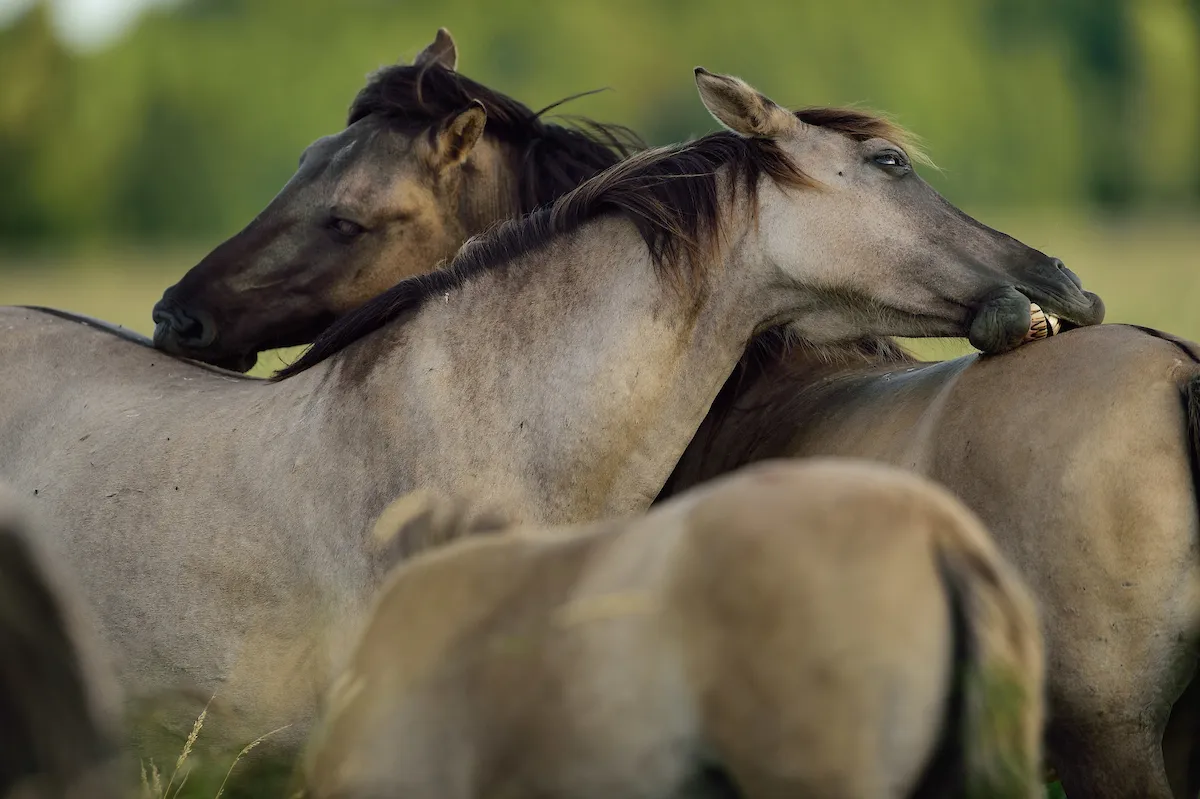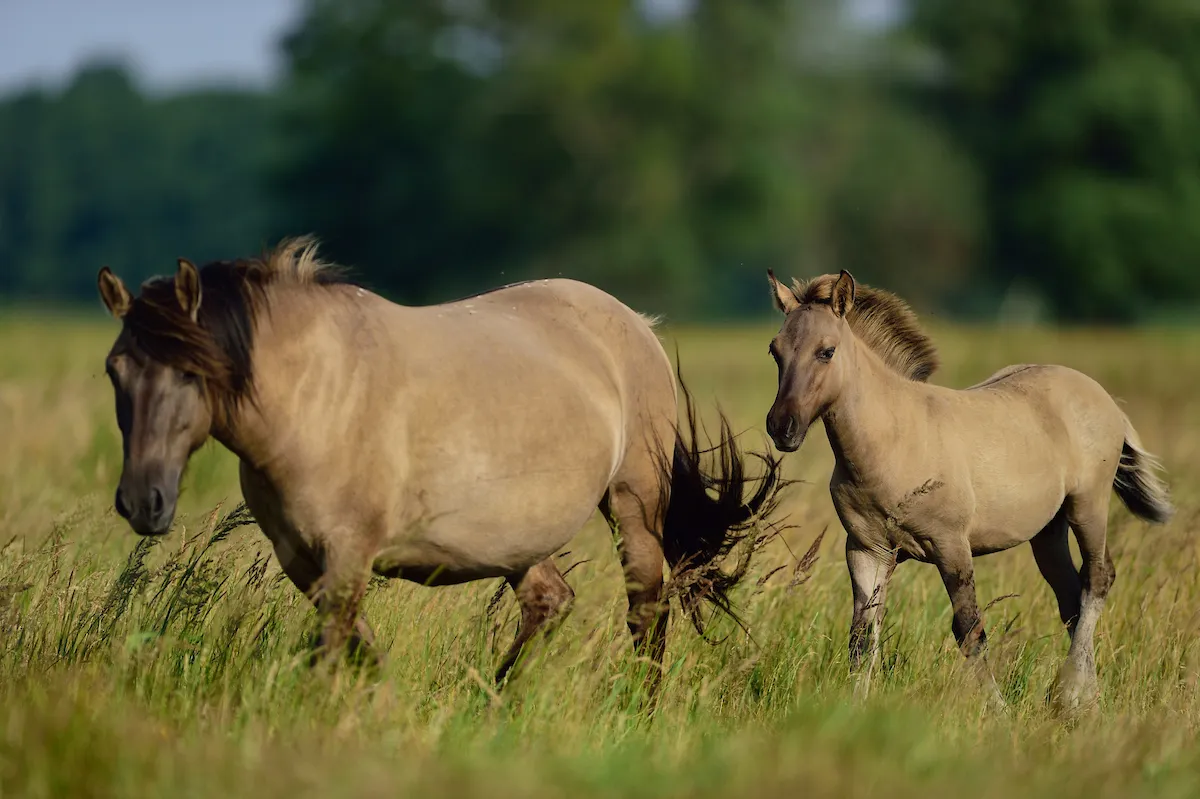23 konik horses, making up two herds, will be released in the Ukrainian Danube Delta, having travelled 1800km across two days from Latvia.
"This shipment took a very long time to organise, so we are delighted that the horses made it safely," says Mykhailo Nesterenko the Rewilding Ukraine team leader. "This is the first time that koniks have been translocated into the delta, and we are really looking forward to releasing them into the rewilding area."
Following a quarantine period the two herds will be released to different areas of the delta.
Konik horses are close relatives of the now extinct Eurasian horse and are adapted to harsh climates and severe weather making them well-suited to the area.

A large part of Europe's biodiversity is based around open grassland and their transition to forest edges, open woodland and groves, which all rely on herbivorous grazing for their existence.
However, large levels of land abandonment have reduced the number of grazing animals and many areas are becoming overgrown leading to biodiversity reductions.

Rewilding Europe wants to reduce this decline by returning native herbivores such as wild horses to lands where they once belonged.
The Danube Delta is one of three planned wild horse reintroductions with the others in Croatia and Bulgaria.